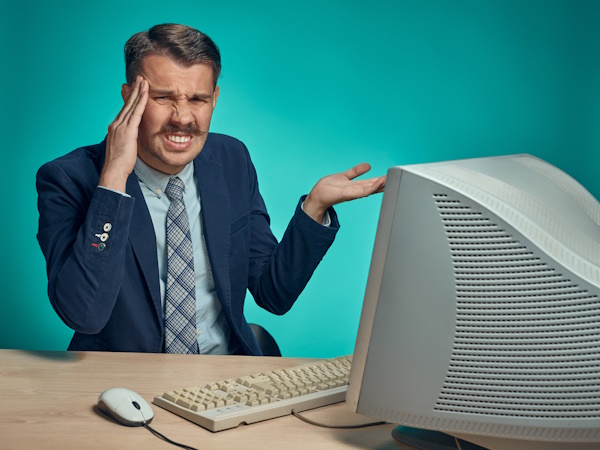The developer of RegCleaner, jv16 PowerTools, Uninstalr, WinFindr, Startup Timer, ScreenshotX, System Examiner and Windows Update Fixer.
Have you been wondering, “Why is my PC running slow?” despite having a decent specs PC or even a high-end PC? Or perhaps you noticed that your PC runs slower than usual when you’re doing a specific thing, like gaming for example?
If that sounds like an issue you’re having, this article will show you the possible culprits of your PC running slow and tips on making your PC run faster.
Table of Contents
Why is my PC running slow?
There are several possible reasons why your PC is running slow, such as:
Slow hard drive
Many people already know that an old style mechanical hard drive (often called HDD for short) is typically very slow, and still using them in your PC will make your system run slower.
However, what might come as a surprise is that cheap and low quality SSD drives – which are the new type of hard drives, without any spinning discs, hence the name Solid State Drive, can actually be surprisingly slow. A high end mechanical hard drive can be faster than a low quality SSD drive.
Therefore, while we recommend everyone who still uses mechanical hard drives to upgrade to SSD, it’s important to keep in mind that buying the cheapest generic brand SSD drive might not improve your PC’s performance. Investing in a high quality SSD drive is the way to go.
Insufficient RAM
RAM (Random Access Memory) is a hardware component where your computer stores data of all running programs. The more RAM you have, the more programs you can run and multitask without slow performance issues.
When you have insufficient RAM to run programs, your computer will take resources from the hard drive. Since a hard drive works slower than RAM, this will considerably slow down your computer.
Low disk space
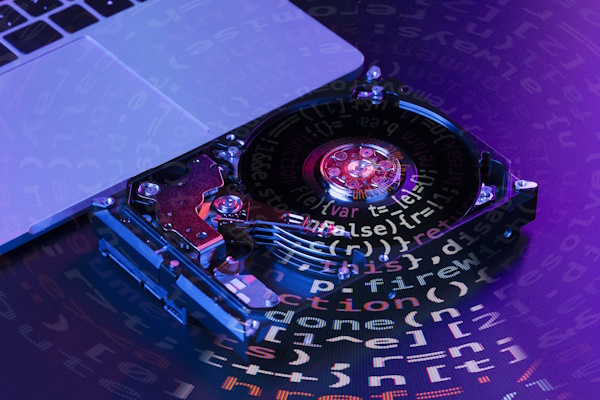
As previously mentioned, when your computer doesn’t have enough RAM, it will use a hard drive (also known as a disk drive or storage drive) for additional resources. Combined with the accumulation of data over the years, these will eat up your disk drive storage space.
When you’re running low on disk space, this will slow down your computer significantly.
Too many background programs
Some programs run processes in the background, even if you don’t actively use them. These processes typically aren’t visible when you open Windows UI and are only visible when you open Task Manager.
When you have too many programs running processes in the background, it’ll consume a lot of resources from your system and in turn, slow down your computer.
Too many startup programs
Startup programs are programs that will automatically launch whenever you turn on your computers. Launching those automatically takes up resources from your system, so it’s important to not have too many unnecessary startup items since they’ll slow down your computer.
Malware and viruses
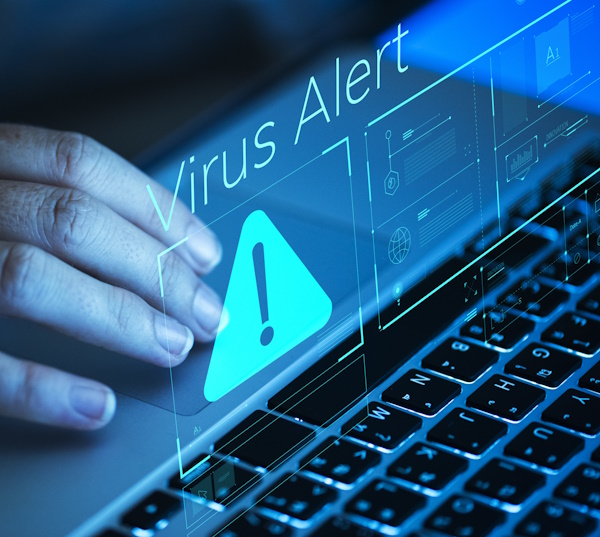
A computer that’s infected by malware and viruses will run slower because they’ll take up resources from the system.
Outdated drivers
Drivers are software components of your computer that are designed to ensure your system runs smoothly. It’s important to make sure that you run the latest version of the drivers, because otherwise your computer system may experience some hiccups and run slowly.
Windows updates
Windows updates are important for your computer because they bring security updates and ensure your system works at its optimal performance. However, during download and installation of Windows updates, your computer may run slower than usual, so it’s preferable to not do anything on your computer during the process. Another thing is, if you have pending Windows updates or updates not working properly, this will also cause your computer to run slowly.
It’s important to make sure that you have the latest update on your computer, and if you run into Windows update issues, a trusted third-party tool like Update Fixer on jv16 PowerTools would fix your problem.
Overheating and dust accumulation
When physical cleaning is overdue and your computer accumulates too much dust, it may cause excessive heat to your CPU. When the CPU components get too hot, it will cause the system to run slower.
Temporary files
Over time, too many temporary files will clutter the system’s temporary data folders, eat up storage space, and potentially slow down your system.
Visual effects and animations
Visual effects and animations, though look cool to see, use a lot of system resources to run. This may slow down your system, especially if you run an older computer.
Too many browser tabs
Opening too many browser tabs and browser windows at the same time will consume a lot of memory, and potentially make your computer running slower. Luckily nowadays some browsers would snooze some unused tabs to save memory, but closing browser tabs and windows you no longer need is always a good idea.
Running high CPU usage programs
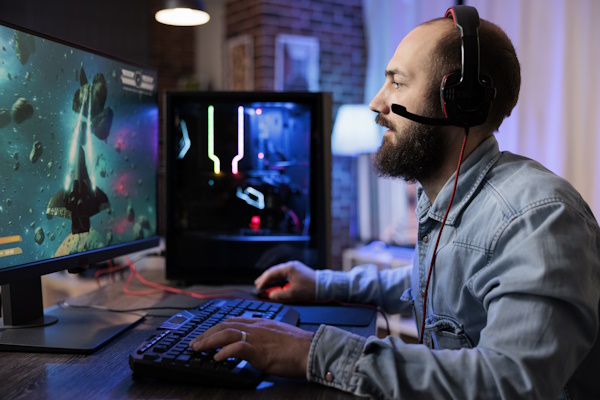
Some programs like games, video-editing software, or streaming applications just simply consume a lot of CPU (Central Processing Unit) usage which will slow down your system.
Power options settings
Windows provides power plan options where you can opt for performance, energy conversion, or a balance between both. When the energy conversion setting is enabled, your computer system will switch to prioritize conversing the battery – sometimes at the expense of performance which will also slow your system down.
What to do when my PC is running slow?
Now that you found out some potential causes of the computer running slowly, you might wonder how you can fix the speed issues and make your computer run faster. Here are some tips that you can try:
Restart PC
There’s a reason why computer technicians would ask, “Have you turned it off and on again?”. It’s sage advice, and sometimes a simple restart would solve unknown issues you’re having with your computer. This is also particularly useful if you have a habit of not turning off the computer after each use.
Upgrading RAM or storage
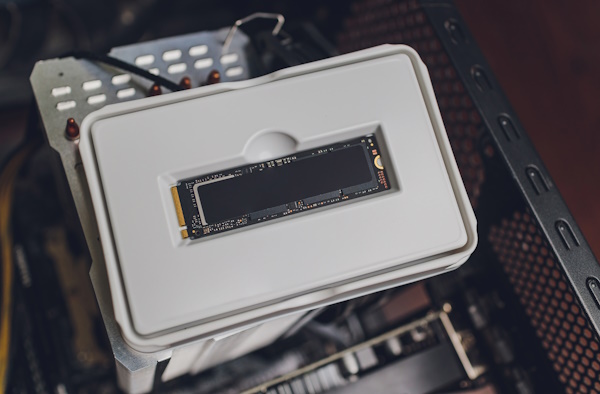
Upgrading RAM or storage is one of the most effective ways to speed up your system since computer slowing down mostly has a lot to do with memory and storage running low. You need to consider using SSD (Solid State Drive) instead of the older mechanical drives like HDD (Hard Disk Drive) since SSD works faster and will make your computer run faster.
Running malware scan
Another step you can try is to scan for malware since viruses and malware can slow your system down. Nowadays Windows Security (also known as Windows Defender Security Center) provides sufficient protection against viruses, though you can use an additional antivirus program if you feel that you need one.
To open Windows Security on Windows 11, you can open Settings > go to Privacy & Security > Choose Windows Security > click “Open Windows Security” and follow the instructions from there.
Uninstalling unnecessary programs
Removing programs that you no longer need is always a good idea. This will free up storage space and improve your computer speed significantly. You can uninstall unnecessary programs through the Windows Apps & features menu or using a trusted third-party tool like Uninstalr.
Disable startup programs that you don’t need
Startup programs are programs that run automatically in the background when you start your computer. Running a program automatically like that would take up quite a lot of resources, so it’s better to only run the ones you need and not have too many of them.
You can review and disable startup programs you no longer need by going to Settings > Apps > Startup.
Physically cleaning your computer
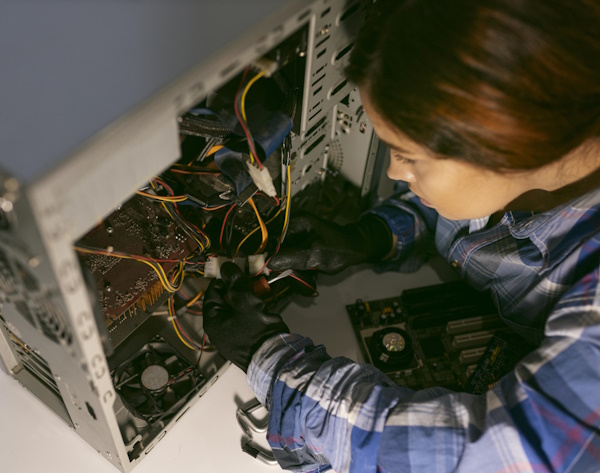
Regularly cleaning your computer hardware would prevent your computer from accumulating dust which could cause overheating. In addition to physical cleaning, you also need to make sure your computer has proper insulation to prevent overheating issues.
Update drivers and Windows
Make sure you run the latest Windows updates and the latest versions of your drivers. You can easily check the info about updates by typing in “check for updates” on the Windows search bar > download and install all available updates on the “Windows Update” page.
On Windows 11, some updates for the drivers are typically available in the “optional updates” option. To access it, type in “check for updates” on the Windows search bar > click “Advanced options” in the “Windows Update” page > select “Optional updates” under the “Additional options” menu. The optional updates for your driver will appear there, and you can install and download those.
Use disk cleanup
As mentioned previously, storage running low is one of the main causes of computers being slow. Aside from uninstalling apps you don’t need, you can also free up some space on your storage drive by running disk cleanup.
You can access disk cleanup by looking up “disk cleanup” from the Windows search bar > select the storage drive you want to clean up and follow the instructions from there.
If disk cleanup doesn’t improve your computer speed, you can also use a trusted third-party tool to clean up your disk, such as System Cleaner from jv16 PowerTools.
Conclusion
There are various possible causes of computers running slow, with the main culprit being RAM and low disk space issues in most cases – though it also depends from computer to computer. There are also various steps you can try to fix slow performance, and when in doubt, you can refer to the official tips from Microsoft to improve your computer performance.
If you’re interested in finding out how significant the impact of those steps is on your computer, check out our blog post “How To Make Windows 10 Faster” where we ran some tests on how to make Windows 10 faster and measure the impact on computer performance.

